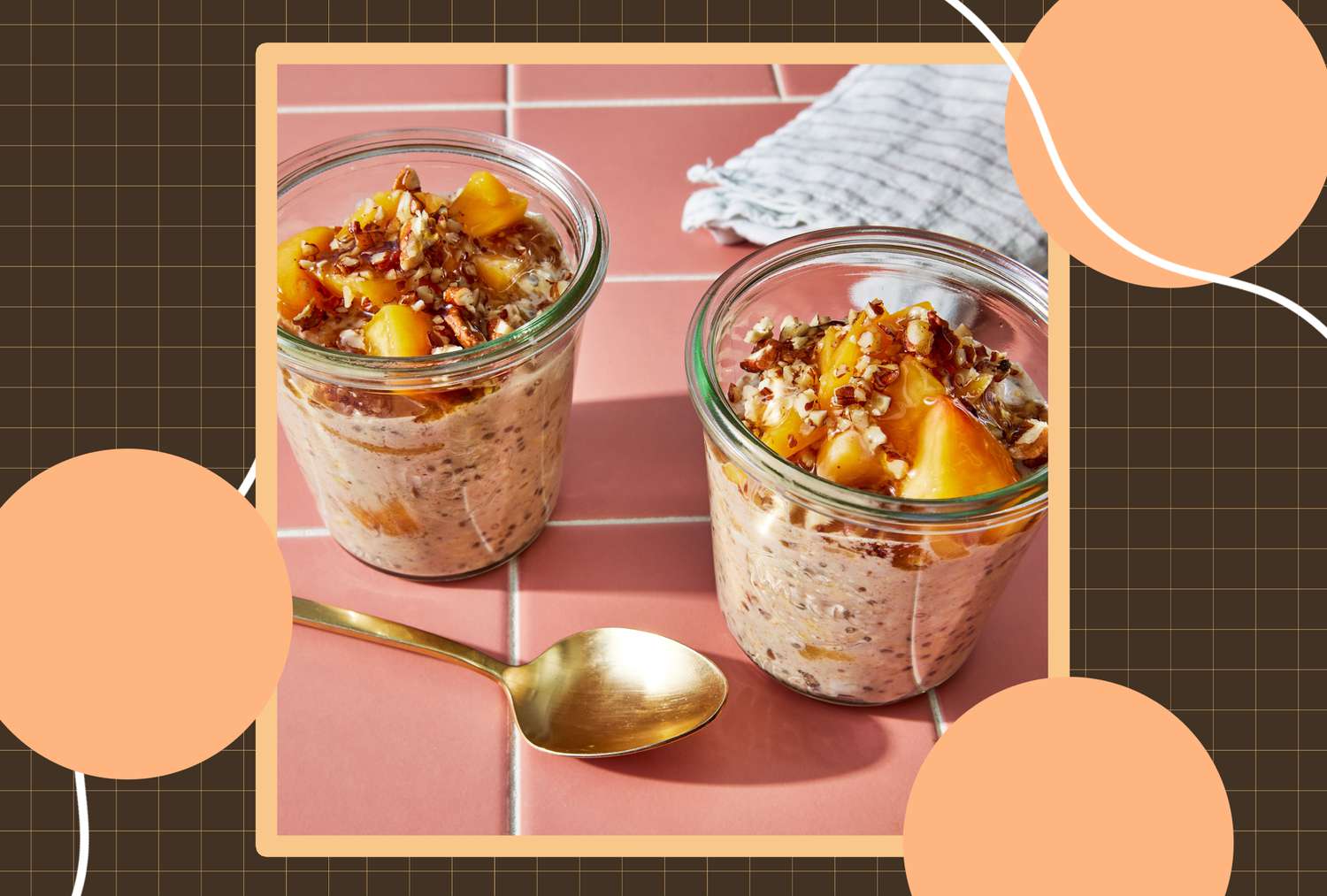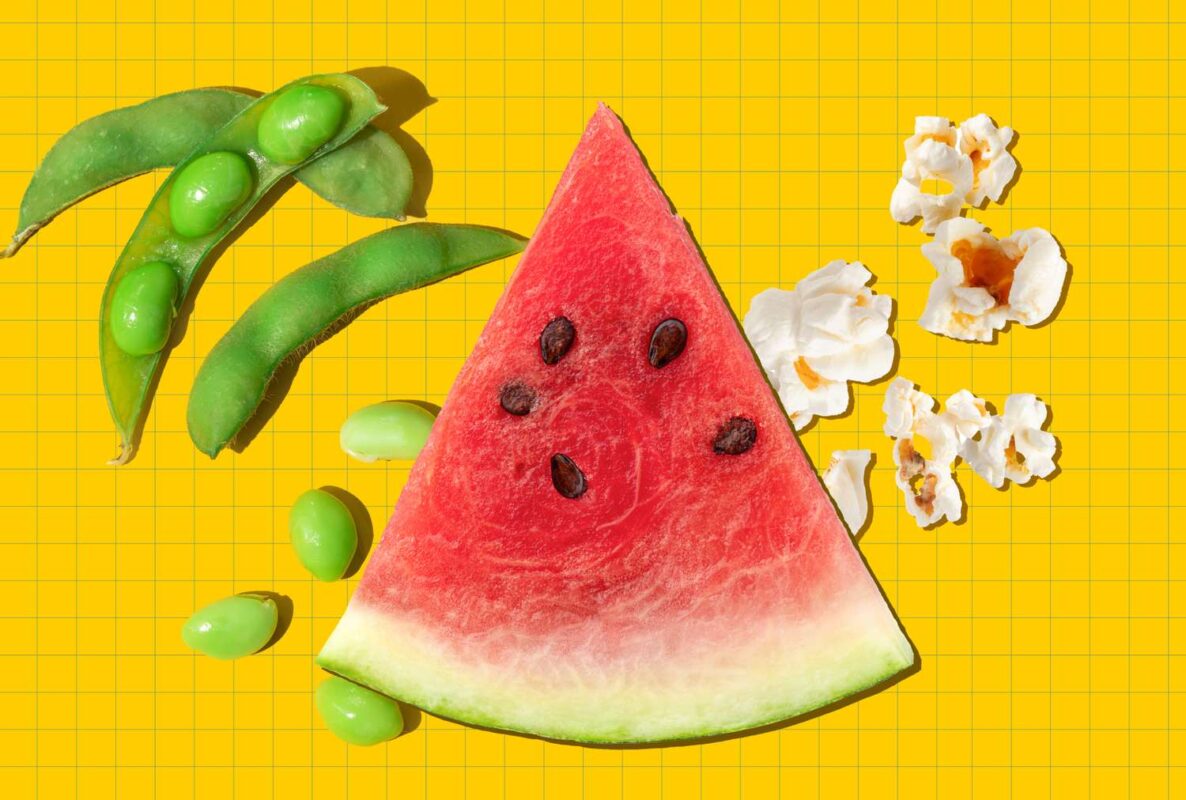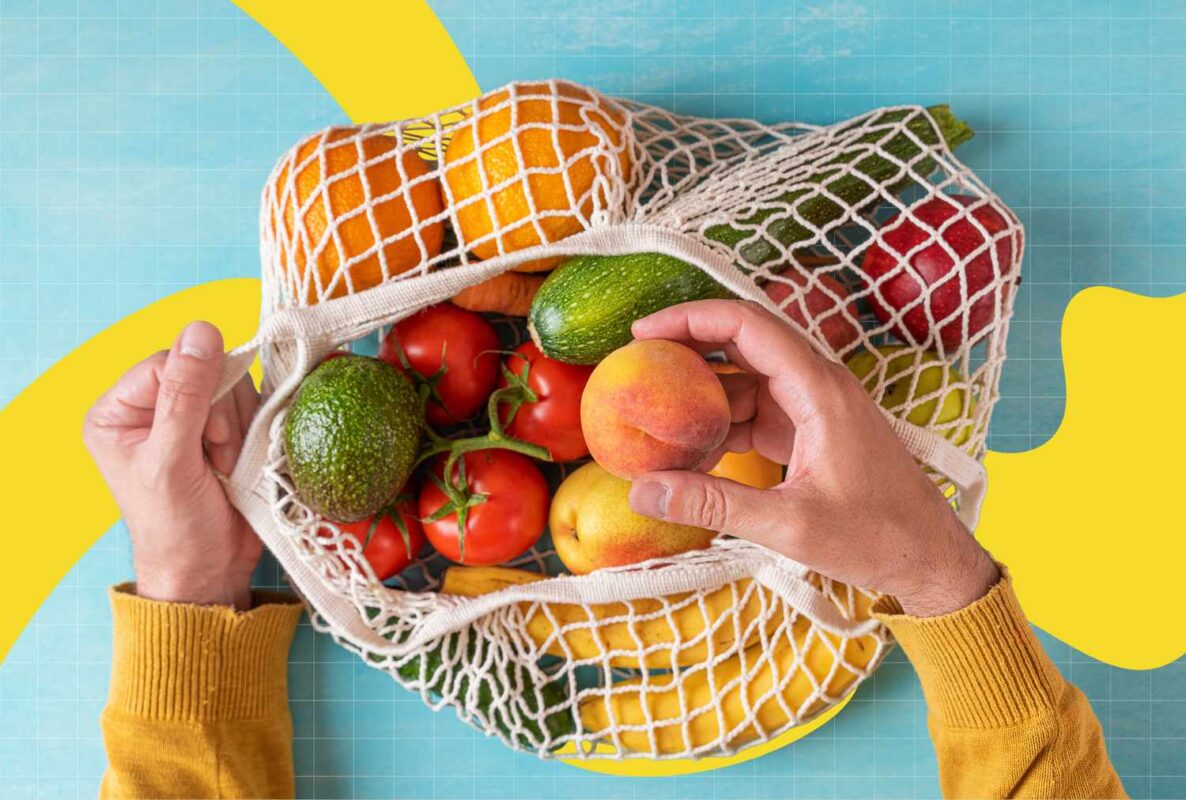Blog
The #1 Food to Eat More Of If You Have High Cholesterol

- Chia seeds provide fiber, omega-3s and antioxidants that can help lower cholesterol.
- Chia seeds are versatile, cost-effective and easy to incorporate into a heart-healthy diet.
- Eating plant-based foods, exercising and not smoking are also important for better cholesterol.
When it comes to lowering cholesterol levels, lifestyle changes are key. High cholesterol, or hypercholesterolemia, occurs when excess cholesterol is present in the blood.Vandana Sheth, RDN, CDCES, FAND says, “High cholesterol is linked to diet, genetics and lifestyle. Over time, this can increase your risk for heart disease.” The good news is that even just a few simple tweaks to your diet can make a big difference in managing your cholesterol levels. For example, adding a sprinkle of chia seeds to your meals is an easy way to boost your intake of soluble fiber and healthy fats—key nutrients for lowering cholesterol.
In fact, one review showed that consuming 35 grams (about 2.5 tablespoons) of chia seeds per day led to noticeable reductions in LDL (“bad”) cholesterol and triglyceride levels compared to the control group. Here, registered dietitians explain why chia seeds are the #1 food to eat more of if you have high cholesterol, along with other strategies for managing your levels.
How Chia Seeds Can Help Lower Cholesterol
Chia seeds are the edible seeds of the Salvia hispanica plant and are an impressive source of dietary fiber, plant-based protein, antioxidants, omega‐3 fatty acids, vitamins and minerals. They’re also naturally low in saturated fat and easy to incorporate into meals and snacks. Here are some of the reasons why adding chia seeds to your diet may be beneficial if you have high cholesterol.
They Provide an Ample Amount of Fiber
Chia seeds are rich in fiber, with a 2-tablespoon serving providing 10 grams of fiber, including 1.5 grams of soluble fiber. Soluble fiber has been shown to help lower cholesterol by binding to cholesterol in the small intestine and removing it from your body. “When chia seed is mixed with water, the soluble fiber forms a gel called mucilage, which can help transport cholesterol out of the body through the digestive tract,” says Kristy Del Coro, MS, RDN, LDN. Research suggests that consuming at least 5–10 grams of soluble fiber per day may reduce LDL cholesterol by 5.5–11 mg per deciliter.
They Contain Plant-Based Omega-3 Fatty Acids
Another impressive benefit of chia seeds is their rich concentration of alpha-linolenic acid (ALA), an essential fatty acid with anti-inflammatory effects. “Chia seeds are rich in plant-based omega-3 fats, which positively support heart health,” says Sheth. Research suggests that ALA can help lower total and LDL cholesterol levels. It may also help increase HDL (“good”) cholesterol levels, though the findings weren’t significant.
They May Help Reduce Inflammation
Chronic inflammation has been shown to reduce HDL cholesterol levels and increase LDL and triglyceride levels. Lorena Akerman, MS, RD, CDN, CDCES, says that chia seeds are rich in polyphenols—plant compounds with antioxidant and anti-inflammatory effects. While more research is needed, high dietary intake of polyphenols has been linked to higher levels of HDL cholesterol in people with metabolic syndrome. Besides being linked with a reduced risk of heart disease, HDL is beneficial as it helps transport LDL away from the heart and back to the liver, where it can be broken down and removed from the body.
They’re Versatile and Economical
Chia seeds are simple to incorporate into a healthy diet and are relatively inexpensive—especially if you buy them in bulk. Akerman notes that while the price varies by brand, chia seeds are generally cost-effective as you’ll likely only use a tablespoon or two at a time.
How to Include Chia Seeds in Your Eating Plan
Chia seeds can be added to virtually any dish, from creamy overnight oats to dinner-sized salads. “Add chia seeds to a smoothie, mix into a yogurt, soak overnight in soy milk (also good for lowering cholesterol) to make a chia pudding or use [them] in granola. Powder form can be used in baked goods, bread or cracker doughs, oatmeal or smoothies,” says Del Coro.
Overnight chia seed pudding is Sheth’s favorite recipe for a delicious, heart-healthy breakfast or snack. She varies up the milk (almond, soy) and adds fresh fruit (berries, mango, stone fruit) and a small handful of chopped nuts (pistachios, walnuts, almonds). You can also sprinkle chia seeds over a slice of avocado toast, add them to a classic PB&J or use them to make a DIY protein powder. Just make sure to add chia seeds gradually into your diet and drink plenty of water to avoid digestive side effects, like bloating or gas. Sheth notes that this is particularly important if you’re not used to eating a high-fiber diet.
Unopened, chia seeds can last up to 5 years when stored in a cool, dry place, like a pantry or cabinet. Once opened, Akerman recommends storing chia seeds in an airtight container in the fridge to extend their shelf life and prevent them from going rancid.
Other Lifestyle Changes That Can Help Reduce Cholesterol
Certain risk factors for high cholesterol, like your genetics, age and family history, are outside of your control. However, there are several lifestyle changes you can make to help lower your cholesterol levels and support heart health. Here are three strategies to try:
Eat more plants
Sheth recommends filling your plate with plant-based foods and heart-healthy fats, like olive oil, to help lower cholesterol. Whole, minimally processed plant-based foods, like vegetables, fruits, whole grains, nuts, seeds and legumes, are packed with beneficial nutrients for heart health and cholesterol levels. In addition to providing fiber, healthy fats, antioxidants and essential vitamins and minerals, they’re also typically low in saturated fat. Compared to omnivorous diets, vegan and vegetarian diets have been associated with lower total and LDL cholesterol levels and a reduced risk of heart disease.
Move your body
Akerman highlights the importance of physical activity. Regular exercise is shown to increase HDL and lower LDL levels. To help prevent or reduce high cholesterol, the American Heart Association recommends engaging in at least 150 minutes of moderate to intense cardiovascular exercise per week. Swimming, cycling, running and brisk walking are all classic examples of aerobic exercise. Dancing, hiking, vigorous yard work and gardening also count. If you’re new to exercise, it’s important to talk to your doctor before starting a new exercise regimen.
Do not smoke
Smoking and vaping can lower HDL cholesterol. Smoking can also increase the risk of heart disease by increasing triglyceride levels and other health conditions associated with high cholesterol, like diabetes and high blood pressure. If you currently smoke, reach out to a healthcare professional for guidance and resources on how to quit.
Our Expert Take
Chia seeds contain soluble fiber, omega-3 fatty acids and antioxidants, all of which can help improve cholesterol levels and support overall heart health. Besides being incredibly nutritious, these tiny but mighty seeds are also easy to use, versatile and relatively inexpensive, making them an excellent addition to your pantry (or fridge).
Of course, no one food can magically improve your cholesterol levels. Eating an overall healthy diet that’s rich in minimally processed plant-based foods, moving your body daily and not smoking are also key. Cholesterol-lowering medications may also be necessary for some folks. Regardless of where you start, identify at least one or two changes you can make today to start moving towards a more heart-healthy lifestyle.












